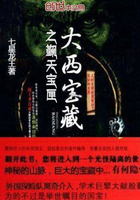If such a privilege is given for the invention of a machine, which performs, by the labor of one man, a quantity of work that used to take the labor of four; as the possession of the exclusive privilege prevents any competition in doing the work, but what proceeds from the labor of the workmen, their wages, as long as the patent continues, must obviously form the measure of the patentee's charge; that is to secure employment, he has only to charge a little less than the wages of the labor which the machine supplants. But when the patent expires, other machines of the same nature are brought into competition; and then his charge must be regulated on the same principle as every other, according to the abundance of machines....
The profit of capital employed..., though it arises from supplanting labor, comes to be regulated, not by the value of the labor it supplants but, as in all other cases, by the competition among the proprietors of capital that presents itself for performing the duty, and the demand for it.
[Pp.119, 123, 124, 125, 134]
Finally, then, so long as the profit is greater than in other industries, capital will be thrown into the new industry until the rate of profit falls to the general level.
We have just seen that the example of the railway was scarcely suited to throw any light on his fiction of the person, Society. Nevertheless, M. Proudhon boldly resumes his discourse:
"With these points cleared up, nothing is easier than to explain how labor must leave a surplus for each producer."[I 77]
What now follows belongs to classical antiquity. It is a poetical narrative intended to refresh the reader after the fatigue which the rigor of the preceding mathematical demonstrations must have caused him. M. Proudhon gives the person, Society, the name of Prometheus, whose high deeds he glorifies in these terms:
First of all, Prometheus emerging from the bosom of nature awakens to life, in a delightful inertia, etc., etc. Prometheus sets to work, and on this first day, the first day of the second creation, Prometheus' product, that is, his wealth, his well-being, is equal to 10. On the second day, Prometheus divides his labor, and his product becomes equal to 100. On the third day and on each of the follow- ing days, Prometheus invents machines, discovers new util- ities in bodies, new forces in nature.... With every step of his industrial activity, there is an increase in the number of his products, which marks an enhancement of hap- piness for hiM. And since, after all, to consume is for him to produce, it is clear that every day's consumption, using up only the product of the day before, leaves a surplus product for the next day."[I 77-78]
This Prometheus of M. Proudhon's is a queer character, as weak in logic as in political economy. So long as Prometheus merely teaches us the division of labor, the application of machinery, the exploitation of natural forces and scientific power, multiplying the productive forces of men and giving a surplus compared with the produce of labor in isolation, this new Prometheus has the misfortune only of coming too late. But the moment Prometheus starts talking about production and consumption he becomes really ludicrous. To consume, for him, is to produce; he consumes the next day what he produced the day before, so that he is always one day in advance; this day in advance is his "surplus labor". But, if he consumes the next day what he has produced the day before, he must, on the first day, which had no day before, have done two days' work in order to be one day in advance later on. How did Prometheus earn this surplus on the first day, when there was neither division of labor, nor machinery, nor even any knowledge of physical forces other than fire? Thus the question, for all its being carried back "to the first day of the second creation", has not advanced a single step forward. This way of explaining things savors both of Greek and of Hebrew, it is at once mystical and allegorical. It gives M. Proudhon a prefect right to say:
"I have proved by theory and by facts the principle that all labor must have a surplus."The "facts" are the famous progressive calculation; the theory is the myth of Prometheus.
"But," continues M. Proudhon, "this principle, while being as certain as an arithmetical proposition, is as yet far from being realized by everyone.
Whereas, with the progress of collective industry, every day's individual labor produces a greater and greater product, and whereas therefore, by a necessary consequence, the worker with the same wage ought to become richer every day, there actually exist estates in society which profit and others which decay."[I 79-80]
In 1770 the population of the United Kingdom of Great Britain was 15 million, and the productive population was 3 million. The scientific power of production equalled a population of about 12 million individuals more. Therefore there were, altogether, 15 million of productive forces. Thus the productive power was to the population as 1 is to 1; and the scientific power was to the manual power as 4 is to 1.
In 1840 the population did not exceed 30 million: the productive population was 6 million. But the scientific power amounted to 650 million;that is, it was to the whole population as 21 is to 1, and to manual power as 108 is to 1.
In English society the working day thus acquired in 70 a surplus of 2,700 per cent productivity; that is, in 1840 it produced 27 times as much as in 1770. According to M. Proudhon, the following question should be raised: why was not the English worker of 1840 27 times as rich as the one of 1770? In raising such a question one would naturally be supposing that the English could have produced this wealth without the historical conditions in which it was produced, such as: private accumulation of capital, modern division of labor, automatic workshops, anarchical competition, the wage system -- in short, everything that is based upon class antagonisM.















